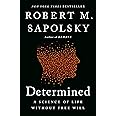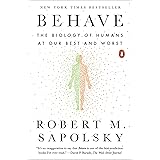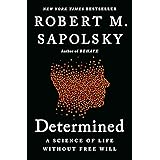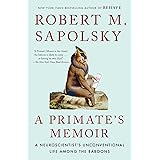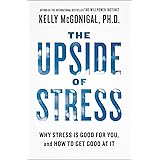
Enjoy fast, free delivery, exclusive deals, and award-winning movies & TV shows with Prime
Try Prime
and start saving today with fast, free delivery
Amazon Prime includes:
Fast, FREE Delivery is available to Prime members. To join, select "Try Amazon Prime and start saving today with Fast, FREE Delivery" below the Add to Cart button.
Amazon Prime members enjoy:- Cardmembers earn 5% Back at Amazon.com with a Prime Credit Card.
- Unlimited Free Two-Day Delivery
- Streaming of thousands of movies and TV shows with limited ads on Prime Video.
- A Kindle book to borrow for free each month - with no due dates
- Listen to over 2 million songs and hundreds of playlists
- Unlimited photo storage with anywhere access
Important: Your credit card will NOT be charged when you start your free trial or if you cancel during the trial period. If you're happy with Amazon Prime, do nothing. At the end of the free trial, your membership will automatically upgrade to a monthly membership.
Buy new:
-36% $15.29$15.29
Ships from: Amazon.com Sold by: Amazon.com
Save with Used - Good
$12.89$12.89
Ships from: Amazon Sold by: The BAP Goods

Download the free Kindle app and start reading Kindle books instantly on your smartphone, tablet, or computer - no Kindle device required.
Read instantly on your browser with Kindle for Web.
Using your mobile phone camera - scan the code below and download the Kindle app.

OK
 Audible sample Sample
Audible sample Sample 


Why Zebras Don't Get Ulcers, Third Edition Paperback – September 15, 2004

Explore your book, then jump right back to where you left off with Page Flip.
View high quality images that let you zoom in to take a closer look.
Enjoy features only possible in digital – start reading right away, carry your library with you, adjust the font, create shareable notes and highlights, and more.
Discover additional details about the events, people, and places in your book, with Wikipedia integration.
Purchase options and add-ons
Renowned primatologist Robert Sapolsky offers a completely revised and updated edition of his most popular work, with over 225,000 copies in print
Now in a third edition, Robert M. Sapolsky's acclaimed and successful Why Zebras Don't Get Ulcers features new chapters on how stress affects sleep and addiction, as well as new insights into anxiety and personality disorder and the impact of spirituality on managing stress.
As Sapolsky explains, most of us do not lie awake at night worrying about whether we have leprosy or malaria. Instead, the diseases we fear-and the ones that plague us now-are illnesses brought on by the slow accumulation of damage, such as heart disease and cancer. When we worry or experience stress, our body turns on the same physiological responses that an animal's does, but we do not resolve conflict in the same way-through fighting or fleeing. Over time, this activation of a stress response makes us literally sick.
Combining cutting-edge research with a healthy dose of good humor and practical advice, Why Zebras Don't Get Ulcers explains how prolonged stress causes or intensifies a range of physical and mental afflictions, including depression, ulcers, colitis, heart disease, and more. It also provides essential guidance to controlling our stress responses. This new edition promises to be the most comprehensive and engaging one yet.
- Print length560 pages
- LanguageEnglish
- PublisherHolt Paperbacks
- Publication dateSeptember 15, 2004
- Dimensions6.1 x 0.95 x 9.05 inches
- ISBN-100805073698
- ISBN-13978-0805073690
Books with Buzz
Discover the latest buzz-worthy books, from mysteries and romance to humor and nonfiction. Explore more
Frequently bought together

Similar items that may ship from close to you
 A stressor is anything in the outside world that knocks you out of homeostatic balance, and the stress-response is what your body does to reestablish homeostasis.Highlighted by 4,339 Kindle readers
A stressor is anything in the outside world that knocks you out of homeostatic balance, and the stress-response is what your body does to reestablish homeostasis.Highlighted by 4,339 Kindle readers A stressor can also be the anticipation of that happening.Highlighted by 3,590 Kindle readers
A stressor can also be the anticipation of that happening.Highlighted by 3,590 Kindle readers With sufficiently sustained stress, our perception of pain can become blunted.Highlighted by 2,651 Kindle readers
With sufficiently sustained stress, our perception of pain can become blunted.Highlighted by 2,651 Kindle readers
Editorial Reviews
Review
"Robert M. Sapolsky is one of the best science writers of our time."―Oliver Sacks
For the first edition of Why Zebras Don't Get Ulcers:
Sapolsky succeeds in interpreting technical material in a way that leaves readers with an understanding of how the same physiological responses, so well suited for dealing with short-term physical emergencies, can turn into potential disasters when chronically provoked for psychological or other reasons....The author has a way with words and images....you'll find plenty to intrigue you. ―The Washington Post
Robert Sapolsky wittily dissects the anatomy of human stress-response. ―The Wall Street Journal
About the Author
Excerpt. © Reprinted by permission. All rights reserved.
Why Zebras Don't Get Ulcers
Third EditionBy Sapolsky, Robert M.Owl Books
Copyright ©2004 Sapolsky, Robert M.All right reserved.
ISBN: 0805073698
From Why Zebras Don't Get Ulcers:
Regardless of how poorly we are getting along with a family member or how incensed we are about losing a parking spot, we rarely settle that sort of thing with a fistfight. Likewise, it is a rare event when we have to stalk and personally wrestle down our dinner. Essentially, we humans live well enough and long enough, and are smart enough, to generate all sorts of stressful events purely in our heads. How many hippos worry about whether Social Security is going to last as long as they will, or even what they are going to say on a first date? Viewed from the perspective of the evolution of the human kingdom, psychological stress is a recent invention. If someone has just signed the order to hire a hated rival after months of plotting and maneuvering, her physiological responses might be shockingly similar to those of a savanna baboon who has just lunged and slashed the face of a competitor. And if someone spends months on end twisting his innards in anxiety, anger, and tension over some emotional problem, this might very well lead to illness.
Continues...
Excerpted from Why Zebras Don't Get Ulcers by Sapolsky, Robert M. Copyright ©2004 by Sapolsky, Robert M.. Excerpted by permission.
All rights reserved. No part of this excerpt may be reproduced or reprinted without permission in writing from the publisher.
Excerpts are provided by Dial-A-Book Inc. solely for the personal use of visitors to this web site.
Product details
- Publisher : Holt Paperbacks; 3rd edition (September 15, 2004)
- Language : English
- Paperback : 560 pages
- ISBN-10 : 0805073698
- ISBN-13 : 978-0805073690
- Item Weight : 1.21 pounds
- Dimensions : 6.1 x 0.95 x 9.05 inches
- Best Sellers Rank: #6,074 in Books (See Top 100 in Books)
- #2 in Ulcers & Gastritis
- #40 in Stress Management Self-Help
- #253 in Psychology & Counseling
- Customer Reviews:
About the author

Robert M. Sapolsky is the author of several works of nonfiction, including A Primate's Memoir, The Trouble with Testosterone, and Why Zebras Don't Get Ulcers. He is a professor of biology and neurology at Stanford University and the recipient of a MacArthur Foundation genius grant. He lives in San Francisco.
Customer reviews
Customer Reviews, including Product Star Ratings help customers to learn more about the product and decide whether it is the right product for them.
To calculate the overall star rating and percentage breakdown by star, we don’t use a simple average. Instead, our system considers things like how recent a review is and if the reviewer bought the item on Amazon. It also analyzed reviews to verify trustworthiness.
Learn more how customers reviews work on AmazonReviews with images
-
Top reviews
Top reviews from the United States
There was a problem filtering reviews right now. Please try again later.
The purpose is to illustrate why we, as individuals, and a Western society, experience stress, and how it manifests as sickness in so many ways. Real sickness, with short term results and long term diseases. In our bodies, not "in our minds", not something we should just "get over". His words and proof is validating scientifically, and a call to action. Our behavior, and the structure of our society, is making us sick. It's not humane to do what we do to ourselves. And we can change this.
I'd like to see this book as mandatory reading for every policy-maker in health and human services. But I certainly wouldn't stop there. Managers, top to bottom, need it to understand the pressures on their employees and organizations. Scientists who work with people, or whose work affects people. Anyone who causes, or experiences, stress. Hmmm....does that leave anyone out?
Okay, not everyone will want to read this book, because it's pretty technical, not designed for an uneducated reader. But the lessons in it are for everyone. I understand Sapolsky is regarded as one of the top neuroscientists in the world, and that's no surprise. What I'm grateful for is that he shares his knowledge in something other than a scientific journal, and it's an amazing read. It will be on my reference shelf permanently, but unlike the others which I use for "reference" --- I will also read it often just because it's a great read. Imagine that.
This book combines social science with traditional science to explain how stress impacts our lives. The book serves up a healthy dose of science as it explains the different body chemicals that are released in response to a stressful event. It explains what these different hormones do and offers up studies and evidence that show what can happen if stress isn’t brought under control.
The title of this book is one that gets your attention and convinces many to read. It’s a metaphor that continues to pop up throughout the reading. It effectively drives home many of the books key points, using a zebra being pursued by a lion as its basis. The book serves up a healthy dose of humor, too, which helps keep things interesting and keeps your attention.
As I read this book, I started thinking more than usual about my own levels of stress and whether I have been negatively affected by stress to a noticeable degree. I feel like I have stress under control, at least better than I used to. I don’t overreact to things like I once did and it’s a good thing I don’t. After reading this book and discovering what stress can do to you, I was tempted to quit my job, sell my urban home, and move to a secluded part of the country.
Stress is detrimental and it is something we all need less of in our lives. Why Zebras Don’t Get Ulcers is a highly useful book for understanding the science behind the stress and all the harm that stress can inflict. It’s a well- written book that explains the science with a dash of humor to keep it entertaining enough that you want to continue reading. I learned quite a bit and it has piqued my interest to continue pursuing more knowledge about stress and its impact on our bodies.
Reviewed in the United States on July 5, 2021
This book combines social science with traditional science to explain how stress impacts our lives. The book serves up a healthy dose of science as it explains the different body chemicals that are released in response to a stressful event. It explains what these different hormones do and offers up studies and evidence that show what can happen if stress isn’t brought under control.
The title of this book is one that gets your attention and convinces many to read. It’s a metaphor that continues to pop up throughout the reading. It effectively drives home many of the books key points, using a zebra being pursued by a lion as its basis. The book serves up a healthy dose of humor, too, which helps keep things interesting and keeps your attention.
As I read this book, I started thinking more than usual about my own levels of stress and whether I have been negatively affected by stress to a noticeable degree. I feel like I have stress under control, at least better than I used to. I don’t overreact to things like I once did and it’s a good thing I don’t. After reading this book and discovering what stress can do to you, I was tempted to quit my job, sell my urban home, and move to a secluded part of the country.
Stress is detrimental and it is something we all need less of in our lives. Why Zebras Don’t Get Ulcers is a highly useful book for understanding the science behind the stress and all the harm that stress can inflict. It’s a well- written book that explains the science with a dash of humor to keep it entertaining enough that you want to continue reading. I learned quite a bit and it has piqued my interest to continue pursuing more knowledge about stress and its impact on our bodies.

This book contains a significant amount of technical discussion. For example, the author goes into detail about the release of stress hormones such as cortisol and norepinephrine. That being said the writing is still clear and easy to follow, even if you do not have a background in medicine or physiology.
In addition to considering the physiological aspects of stress, the author also talks considerably about the psychological aspects of stress. He writes for example about studies of attachment style, and what kinds of childhood environments lead to stress later in life.
Surprisingly, another treat about this book is the footnotes. The author shares humorous and informative anecdotes here such as why JFK had a bad back, the inner working of toilet bowls, and why hormones have their names.
I've tremendously enjoyed reading this book, and also Sapolsky's other book 'A Primates Memoir'. He makes science fun to read, and is world-class in his field. Granted the book is long, and the fact that the topic is stress all the way through did make it go slowly in some places. Nevertheless, if you have an interest in science, are not thrown off by technical discussions, and are looking for an eye-opening read then I'd recommend you give this book a go.
Top reviews from other countries
Moins simpliste que tous les ouvrages “a theme” qu’on peut voir sur le sujet, et du coup moins follichon, plus complexe, moins mono explicatif. Plus vrai quoi. Superbement documenté, extraordinairement précis, et très bien expliqué. Pas un page turner pour autant: on fait dans l’exactitude, la pose des fondations et longs preambules quand c’est necessaire, mais tous les angles sont couverts, et on ressort enfin, pour la premiere fois, avec une reference sur la “science” du stress.
Ce mec est genial, ils/elles doivent s’echarper pour l’avoir comme prof.









